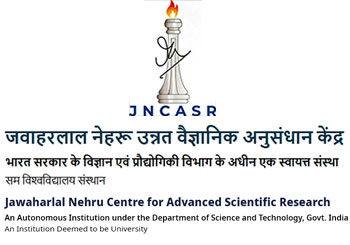Startups
JNCASR Technical Research Center (TRC), is among the very few Indian public-funded R&D institutes that have taken up commercialization of ‘high risk–high potential’ technologies for global markets. TRC, established in 2016 with support from DST, GOI, is a multifaceted platform with a mission to provide techno-legal-commercial and financial support to scientists, entrepreneurs, and business fraternity to achieve translation of research into products and processes by:
- Supporting application-oriented projects to build upon background intellectual properties (IP) developed at JNCASR, and also to create new IP.
Following are examples of the start-up ventures:

JNCASR Technical Research Center (TRC)
- Bolstering JNCASR-industry partnerships via out-licensing of IP/know-how, industry-sponsored R&D projects, industrial consulting, and collaborative R&D projects.
- Creating a conducive ecosystem to spin-off technologies/intellectual properties developed by JNCASR through start-ups.
- Developing R&D infrastructure required to perform translational R&D. Following are examples of the start-up venturesFollowing are examples of the start-up ventures
Examples include a research project, supported by TRC, focused on developing low-cost, non-invasive method for HIV diagnosis and other types of infectious diseases using Raman spectroscopy. A low-cost method for management of red palm weevil and rhinoceros beetle in coconut plantations has been licensed to two industrial partners. One project deals with thermoelectric materials and conversion of waste heat to electrical energy, while another project aims at developing non-Pt based ordered inter metallic nanoparticles as electrode materials for fuel cell green energy production. Through such projects, TRC aims to promote translational research, and contribute towards strengthening the country’s excellence in science by striking the right balance between fundamental research, directed development, and deployment. Since inception, TRC has supported ~30 R&D projects, licensed more than a dozen and a built a pipeline of ~10 technologies/IPs, initiated three start-up companies, with two more in the pipeline, supported more than 20 patents, collaborated with more than 10 industrial partners, set up a state-of-the-art R&D infrastructure, and built a wider network of R&D stakeholders with conducive innovation ecosystem.
Sankhya Sutra Labs (SSL) Pvt. Ltd.
SSL is the first start-up initiated at JNCASR in 2016, and was co-founded by Prof. Santosh Ansumali (EMU). The only company of its kind in Asia, SSL provides high-end Computational Fluid Dynamics and simulation solutions for complex product development problems, with applications ranging from precision engineering to aerospace to defense to cement plants. In a short span of time, SSL has made substantial progress in terms of garnering investments, building its core team and a robust sales pipeline, and securing angel and series-A investments. Recently, SSL successfully graduated from JNCASR.
HBAROMEGA Pvt. Ltd.:
This company was envisioned as a start-up with expertise in photovoltaics (PV), with the challenge to identify and filter out underperforming and defective PV panels. The company aims to accomplish this by making use of a simple yet powerful technique of light beam induced photocurrent (LBIC) to identify at an early stage the majority of defects that can compromise the performance of a PV panel. The start-up has been developing this technology and is geared-up to commercialize the technique of LBIC for large area panels in manufacturing and installation environments. The aim is to bring this technique into mainstream production and quality control process for both domestic and international markets in order to improve reliability of PV panels which will, in turn, improve lifetime and energy payback. Another important objective is to minimize the huge pileup of solar panels in landfills, resulting from sub-optimal panels, and ground water contamination that follows large-scale solar PV panel waste.
Breathe Applied Sciences Pvt. Ltd.
(BAS)JNCASR faculty members Prof. Umesh Waghmare and Prof. Sebastian Peter, along with Dr. Rakshith Raghavan (JNCASR alumni) formed a team to take part in the global $20 million NRG COSIA Carbon XPrize Competition, hosted by the XPrize Foundation, USA. The team led by Prof. Peter submitted its proposal focused towards converting carbon dioxide to methanol, based on which it entered the final round (only Indian team to do so). he overall technology development is centered with the discovery of novel catalysts by Prof. Sebastian C. Peter and his research group.

Breathe Applied Sciences Pvt. Ltd.
The group also designed the process engineering, which integrated with other components to make a turnkey project for the efficient utilization of anthropogenic CO2. The team is now in the process of developing and commercializing the proposed cutting-edge technology that fits perfectly under the umbrella of methanol economy, import substitution, and Make in India. Moreover, the technology can also be extended to a host of other chemicals. The team is currently refining its technology and business plan and scaling-up its technology.
- Back to previous page
- |
-
Page last updated date:25-06-2025 12:04 PM























